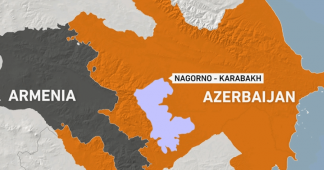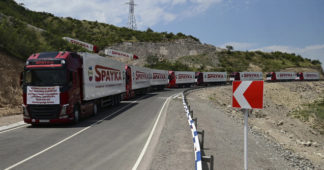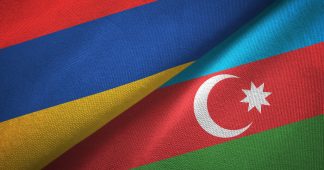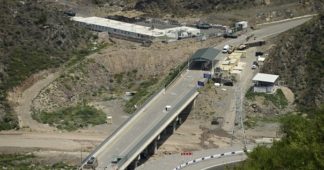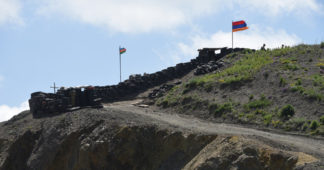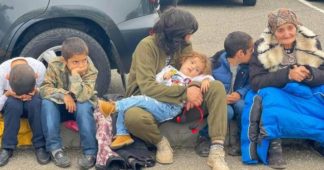Ethnic Armenians cut off by Baku’s advance sense their breakaway state is on the point of collapse
By Andrew Roth in Goris, Armenia
Sep 24,2023
Anna has already survived nine months of a blockade, then a new Azerbaijani offensive that brought shelling and gunfire to her city, and then days hiding in a basement.
Now, even as fighting dies down, life in her hometown in Nagorno-Karabakh is a struggle to survive, with shortages of nearly all critical goods, whole families sleeping rough or scrabbling for food after fleeing their villages, and an information vacuum that has separated loved ones and fuelled fears of the worst in towns occupied by Azerbaijan.
“They have genocidal intentions toward us, they have proved that,” Anna told the Observer by telephone from Stepanakert. “They subjected us to starvation for more than nine months, and then they killed more than 200 soldiers, more than 40 civilians, children. You cannot live in peace with these people.”
In dark towns and villages, with little food and no phone signal, ethnic Armenians in Karabakh are scrambling to find loved ones while many fear what could happen if Azerbaijani soldiers come into their homes before they find a way to escape. “I am a person who is active on social media,” said Anna. “I have also been involved in journalism … It’s very dangerous for me personally to be here. It’s dangerous for anyone to be here.”
Karabakh is a mountainous region that Armenians have claimed as an ancestral homeland but which has been internationally recognised as part of Azerbaijan since the fall of the Soviet Union. Many Azeris were forced out of the region during a bloody war in the 1990s that ended with large swathes of Karabakh under the control of a breakaway ethnic-Armenian state called Artsakh.
Border clashes have periodically flared up since then, and in 2020 Azerbaijan launched a huge offensive that ended in a decisive defeat for Armenia, as well as numerous accusations of war crimes. Azerbaijan forces took control of the historic city of Shusha and forced Armenia to sign a controversial ceasefire agreement involving the introduction of Russian peacekeepers.
Last week, Azerbaijan launched a new offensive, forcing the breakaway republic to agree to disband its territorial defence forces and enter talks that it said would lead to the “reintegration” of Azerbaijani lands.
Stories from ethnic Armenians in Artsakh paint a picture of the disintegration of a state and the deprivations of war. After three decades of self-rule, many have watched their lives collapse in a matter of weeks.
Continue reading at www.theguardian.com
We remind our readers that publication of articles on our site does not mean that we agree with what is written. Our policy is to publish anything which we consider of interest, so as to assist our readers in forming their opinions. Sometimes we even publish articles with which we totally disagree, since we believe it is important for our readers to be informed on as wide a spectrum of views as possible.
